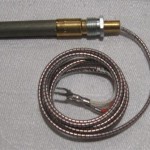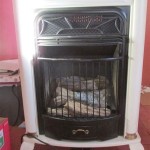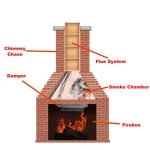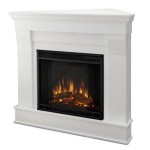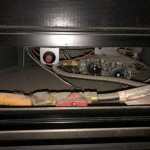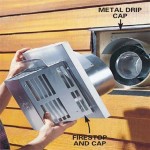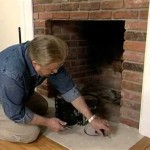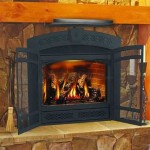Understanding Gas Fireplace Smell: Causes and Solutions
Gas fireplaces, although a popular and efficient source of heat, can sometimes emit unpleasant odors. These odors can range from mild to strong and may resemble a variety of scents, including sulfur, rotten eggs, or a general unpleasant burning smell. While a slight odor during initial ignition is normal, persistent odors are a sign of a potential problem that should be addressed. This article will explore the common causes of gas fireplace smell and provide solutions to mitigate or eliminate them.
1. Incomplete Combustion
One of the primary causes of gas fireplace smell is incomplete combustion. This occurs when the gas does not burn completely, leading to the release of unburnt gases, including carbon monoxide and sulfur dioxide. Incomplete combustion can be caused by several factors:
- Insufficient Air Supply: If the fireplace is not receiving enough fresh air, the flames may become starved for oxygen, resulting in incomplete combustion. This can happen if the fireplace is located in a poorly ventilated room or if the vent is blocked.
- Improper Gas Pressure: Incorrect gas pressure can affect the efficiency of the burner and lead to incomplete combustion. If the gas pressure is too low, the flame may be weak and struggle to burn all the gas.
- Dirty or Clogged Burner: Accumulated dust, debris, or carbon buildup on the burner can obstruct airflow, making it challenging for the gas to burn completely.
- Malfunctioning Pilot Light or Igniter: A faulty pilot light or igniter may not provide enough heat to initiate proper flame ignition, contributing to incomplete combustion.
The smell associated with incomplete combustion can range from a mild sulfurous odor to a more pungent burning smell. In severe cases, the odor may be accompanied by a yellow or orange flame, rather than a bright blue flame, a sign of inefficiency and potential safety hazards.
2. Issues with Venting System
The venting system of a gas fireplace is crucial for safely expelling combustion byproducts. Problems within this system can lead to a build-up of gases within the fireplace and the surrounding area. It's important to understand that problems with the venting system can pose a serious safety risk as they can allow harmful gases like carbon monoxide to accumulate inside the home.
- Blocked or Obstructed Vent: Birds nests, debris, or even the accumulation of soot can block the vent pipe and create a backdraft, pushing fumes back into the room.
- Improper Vent Installation: A poorly installed vent may create leaks or draft issues, allowing smoke and gases to escape into the house.
- Damaged Vent Components: Cracks or holes in the vent pipe can permit gases to escape and cause an unpleasant odor.
An unusual gas smell, particularly in the area surrounding the fireplace, is a strong indication of a venting system issue. If you notice any of these signs, immediately shut off the fireplace and contact a qualified technician for inspection and repair.
3. Gas Leaks
Although less common, gas leaks can be a serious cause of gas fireplace smell. These leaks can be caused by a variety of factors, including:
- Damaged or Loose Gas Line: Deterioration, corrosion, or accidental damage to the gas line can lead to leaks.
- Improperly Connected Gas Line: If a gas line is not properly connected to the fireplace, it might develop a leak.
- Loose Fittings: Over time, fittings on the gas line can become loose, permitting gas to escape.
The smell associated with a gas leak is often described as a strong, pungent, and sometimes sweet odor, similar to rotten eggs. If you suspect a gas leak, immediately evacuate the premises and contact your local gas utility company. Never attempt to troubleshoot or repair gas leaks yourself.
In addition to these common causes, other factors can influence the smell of a gas fireplace. These include the type of gas used, the age of the fireplace, and the frequency of use. For instance, older fireplaces may produce more odor due to increased wear and tear on components.
It is important to note that the smell from a gas fireplace can vary depending on the specific issue, the severity of the problem, and the type of fireplace. If you are experiencing an unpleasant odor, it is advisable to consult with a qualified HVAC technician or a professional fireplace specialist. They can diagnose the problem, provide solutions, and ensure the safe and efficient operation of your gas fireplace.

Here S Why Your Gas Fireplace Stinks Full Service Chimney

How To Get Rid Of Fireplace Smell Vertical Chimney Care

Why Do My Gas Logs Smell Foster Fuels

Here S Why Your Gas Fireplace Stinks Full Service Chimney

Vent Free Fireplace Odor

Why Does My Gas Fireplace Smell Like Kerosene Hunker

Vent Free Fireplace Odor

Why Your Gas Fireplace Stinks Chimney Experts

Why Does My Gas Fireplace Smell Like When I Turn It On

Fireplace Gas Valve Leaking Here S How To Test It
Related Posts

